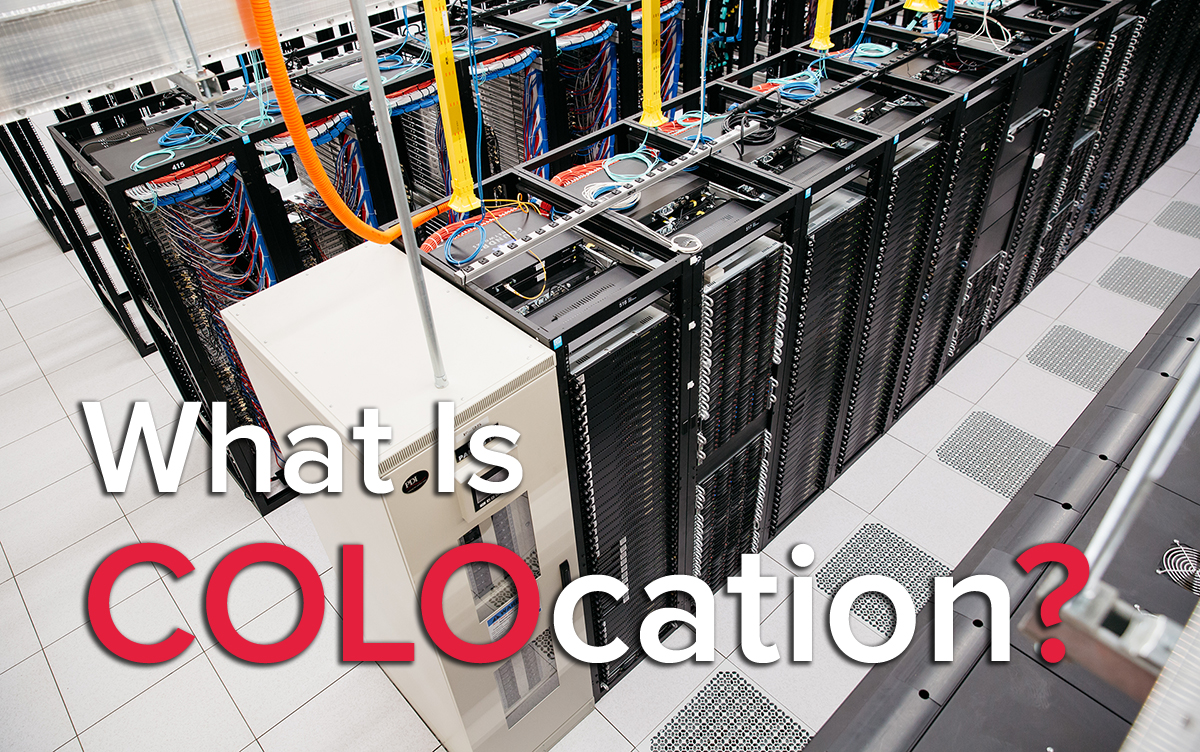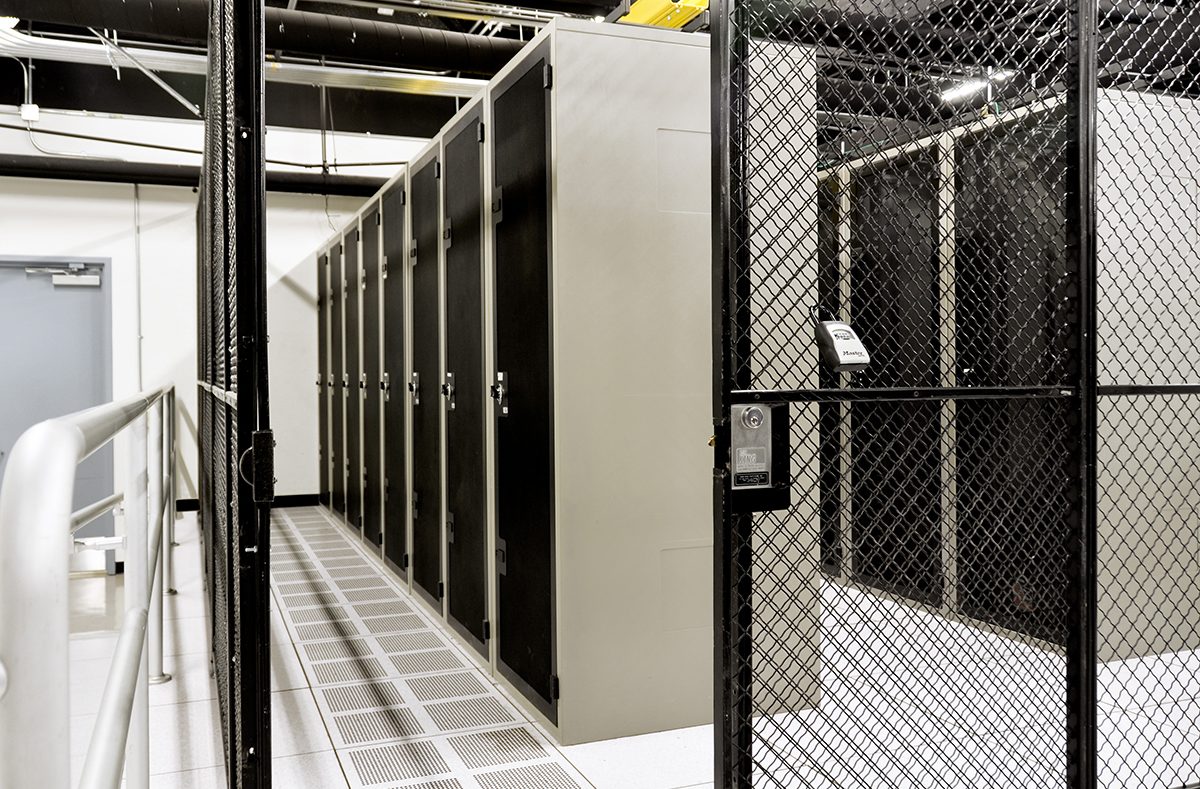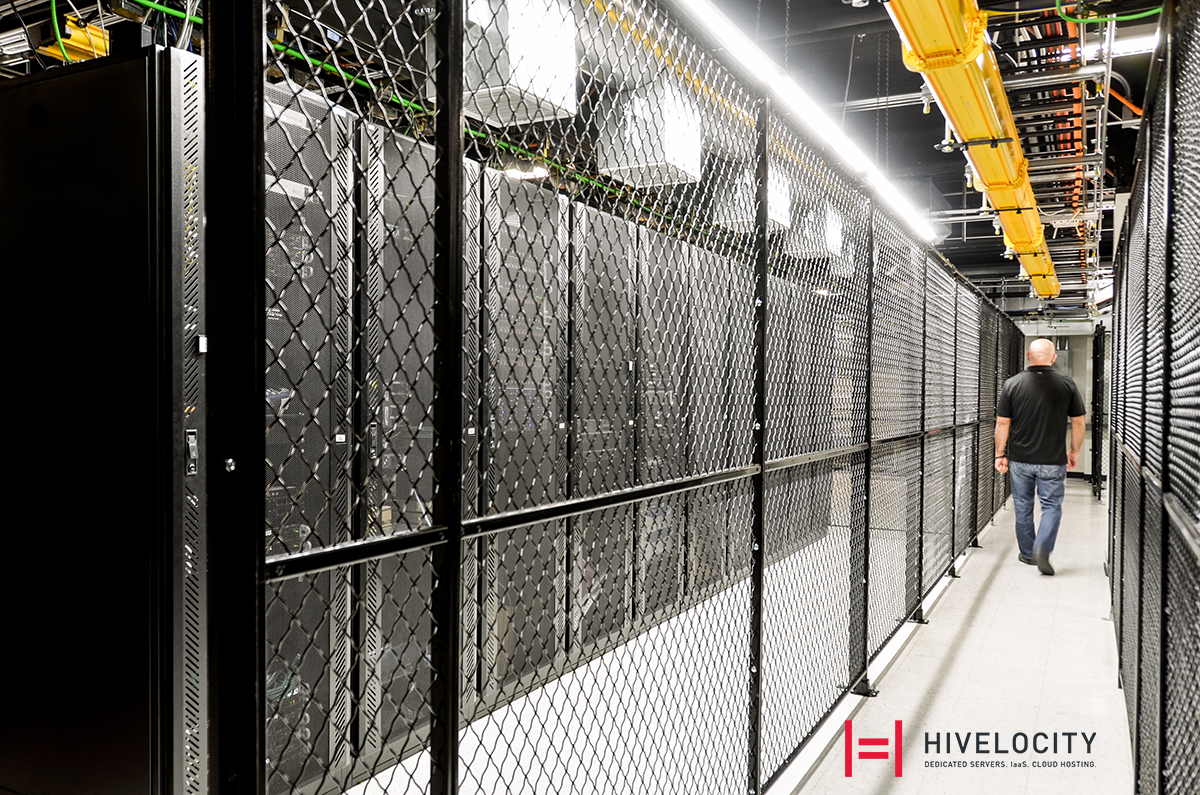
If you’re a business owner, then you know how important your servers are to your business. Whether storing product information for an eCommerce site, sales histories for a brick-and-mortar retailer, or customer records for the clients of a business-to-business service provider, the data stored on private servers is vital to a company’s success. It’s precious, and the measures needed to maintain it are a costly but crucial element of running any modern business.
For years, the only practical solution to data storage was the use of on-site servers. These servers rarely came cheap and required maintenance by well-paid and highly-trained IT professionals. Beyond the upfront expenses of hardware and good personnel, the underlying costs of running a server room add up quickly. Physical space, power, temperature regulation, network requirements: these factors all must be taken into consideration.
Sure, there are a multitude of hosting services out there offering alternatives. While these services cover a wide range of hosting solutions, what if you could reduce costs without completely re-doing your current digital infrastructure? Through the use of colocation hosting, this is more than a distant dream.
But what is colocation and how can it benefit you?
What is Colocation?
Colocation, also known as “Co-location” or “Colo” for short, is a simple concept at its core. Rather than a company storing servers in a server room within their own facilities, colocation allows businesses to rent space and power within a provider’s remote data center. In exchange for a monthly fee, the business owning the servers is able to use the data center’s resources while still making use of the hardware and personnel they already pay for.
Using colocation is similar to renting a storage unit at a large storage rental facility.
The company providing the space owns the building. Storage units are offered in the form of racks and cages, but the contents of these containers are the personal belongings of the organization renting the space. The customer is then granted 24/7 access to their servers within a securely monitored facility. While the equipment is stored remotely, the responsibility for maintaining the servers remains with the company who owns them.
Colocation allows businesses to rent space and power within a provider’s remote data center.
Typically, when purchasing colocation services, the company providing the service offers up the use of their physical space, cooling hardware, power usage, bandwidth, and physical security/disaster mitigation procedures. From there, the owners must maintain their servers themselves.
As a result of this, pricing for colocation services can vary greatly. Typically this cost correlates directly with the amount of physical space being rented. Additionally, the required strength of network connectivity per server, and the amount of on-site support needed to maintain the servers factor in as well.
Advantages to Colocation Hosting

Unlike when renting a managed dedicated server, colocation still carries with it a high degree of required technical expertise. After all, it’s the same as running your own internal network, only remotely.
So, if owning your own hardware and paying your own personnel are the same whether you store your servers on-site or through a remote data center, then what are the advantages of colocation?
The biggest advantage of colocation is its ability to diminish indirect costs associated with hosting servers on-site.
For instance: let’s say you’re running a large eCommerce site that is continuing to grow. While congratulations are in order, it’s important to remember that growth and profit come at the expense of larger infrastructure needed to support them.
Maybe you’ve been able to get by until now with a single rack of servers stored in a back room of your facility. With your company’s technical needs expanding though, the time has come to consider your next step.
-
Do you jam more servers into the space you already have?
-
Do you build or purchase a new space with room to store your future hardware needs?
-
Beyond purchasing your servers, what other hardware will you need to invest in to keep them running optimally?
While the ability to retain full-control is one of the selling points of a dedicated server, what do you do when you just don’t have the physical space to store more?
The biggest advantage of colocation is its ability to diminish indirect costs associated with hosting servers on-site.
Colocation is beneficial because, rather than constructing an entirely new space for hardware you are expanding on, you can rent the space you need at a facility built around optimal server maintenance. Not only are you avoiding the fees associated with building costs, but additionally, you are gaining access to the provider’s top-of-the-line temperature regulating hardware and their physical and digital security measures.
These advantages are still just scratching the surface though. Data centers rely on massive amounts of electricity to keep themselves and their clients running 24/7. For this reason, they are often able to negotiate breaks on their electricity costs. These savings can then be passed along to clients. This is often true of their networks as well. Since they must remain cutting-edge to stay ahead of the competition, they can provide their clients with an optimized user experience.
Additionally, a colocation provider’s credibility is dependent on their ability to provide their clients with superior service, utility, and as close to 100% uptime as possible. This means the IT professionals they employ are often the best in the industry. These data experts typically have years of experience in their fields and undergo continuous training in new technologies. Often, they can even be hired by external clients to assist directly during emergencies.
Some colocation providers also offer managed colocation. With managed colocation, a company’s servers housed in the provider’s facilities can be maintained by colocation technicians in exchange for an additional fee.
Disadvantages of Colocation Hosting
Now, no single hosting solution will ever provide businesses with a perfect fix-all for every potential issue. As with anything, colocation does have its share of disadvantages.
The majority of colocation services only provide space for companies to store their hardware. This means the level of technical expertise needed to maintain a server is the same whether it’s stored in-house or at a remote location.
In other words, just because you don’t see your servers every day doesn’t mean it isn’t still your responsibility to maintain them.
Typically with colocation services, a company hosting their servers remotely accesses their data via a console. This digital interface allows them to interact directly with their servers and make modifications from a distance.
However, what if there’s an issue that can’t be solved through the console? If the issue is related to the hardware, interfacing digitally with your server won’t be enough.
While colocation providers typically offer 24hr access, when your server isn’t hosted on-site, whenever you need to physically interact with it, you now have associated travel expenses. Beyond the financial impact of this, there is also the loss of time. For small IT departments, the inability to work on other issues while offsite can strain resources.
Another potential risk with colocation has to do with the way some companies write their service agreements. As with any contract, you want to be careful when signing up for colocation services. It isn’t unheard of for companies to sneak hidden fees into their contracts. They may even lock their clients into these less than beneficial deals.
While these risks can be heavily reduced with a little prior research, it’s important to remember that not every colocation provider is the same.
Managed Colocation

As the need for colocation services grow, more and more service providers have begun offering managed colocation.
Like regular colocation, in a managed colocation plan, a company rents space in a data center and uses the facility’s resources to run their own hardware. Unlike typical colocation services though, with managed colocation, companies have access to on-site technicians who help them run their servers and act as contracted IT personnel.
Due to the wide variety of possible server configurations though, a technician’s ability to manage an outside company’s servers may be limited. For business owners considering managed colocation services, it might be worth their time to look into a managed dedicated server hosting plan instead.
Dedicated server hosting offers many of the same advantages of colocation. Since the servers are typically built and maintained entirely by the service provider’s personnel though, their understanding of the technology and ability to manipulate it will be even more precise. As a result, the services they will be able to provide will be even greater.
Things to Consider in a Colocation Service Provider
There are of course many determining factors when looking at which colocation service provider is the right fit for your business. The following list is hardly everything worth considering. However, by keeping these questions in mind, you can ensure you narrow your selection down to those providers best suited to your company’s needs.
- Affordability
- Does the monthly cost of colocation services fit within your company’s budget?
- Would switching to this provider for colocation services reduce your yearly tech budget in a significant way?
-
Are additional fees hidden in your contract that will add up over time?
- Customer Service
- Is on-site staff available 24/7?
- Is this staff available to help in emergencies or for an additional fee?
-
Can they offer you custom solutions suitable for your company’s needs?
- Reliability
- Does the provider have experience hosting with companies of your size?
- How long have they been providing colocation services?
-
Does their network provide consistent uptime?
Once you’ve located a provider you trust, the next steps are easy. After signing the contracts, transferring your servers into the provider’s facility, and connecting everything back up, your colocated network will be up and running in no time.
A colocation provider’s credibility is dependent on their ability to provide their clients with superior service, utility, and as close to 100% uptime as possible.
But maybe now that you know more about colocation and how it works, you’ve begun to question if it’s actually the right solution for your company’s needs.
That’s understandable. Your servers and hosting solution are important. Determining which decision is the best fit can be difficult and shouldn’t be rushed.
Allow me to offer a suggestion:

At Hivelocity, we pride ourselves on offering a multitude of customizable solutions to our clients’ data needs.
Whether you’re in need of colocation services, dedicated server hosting, or one of our many other options, give our sales team a call or send us an email and tell us about your organization’s specific needs. We have a variety of pre-packaged and fully-customizable services available. With Hivelocity, the solution to your tech needs is only a phone call away!
Back to you!
Do you have previous experience with colocation you’d like to share? Thinking of making the switch but unsure if it’s the right fit for you? Leave a comment below. If you found this article helpful, be sure to share it on your favorite social media platforms, and don’t forget to like us on Facebook!
– Written by Sean Kelly
Additional Links:
Searching for more great content? Interested in cPanel, Virtual Private Servers, or Private Cloud? Check out our recent posts for more news, guides, and industry insights!



1 thought on “Colo: What is Colocation?”
its just great information about server colocation